Table of Contents
The BSTC Exam is set for June 30, 2024. It will be conducted offline and will feature multiple-choice questions. The Teaching Aptitude section in the BSTC 2024 exam assesses candidates’ proficiency in various aspects of teaching aptitude.
BSTC (Basic School Teaching Course) Teaching Aptitude questions are designed to evaluate a candidate’s suitability for the teaching profession. These questions typically assess various aspects such as understanding of educational psychology, classroom management, communication skills, teaching methodologies, and the ability to foster a positive learning environment. To aid in your preparation, Adda247 has compiled a selection of BSTC Teaching Aptitude questions.
Check: BSTC Admit Card 2024 Download Link
Usage of BSTC Teaching Aptitude Questions and Answers
BSTC (Basic School Teaching Course) Teaching Aptitude questions and answers are invaluable tools for candidates preparing for teaching entrance exams and aspiring to join the education sector. Here are some key usages:
- Assessment Preparation: These questions help candidates familiarize themselves with the types of questions they will encounter in the BSTC exam, enhancing their confidence and readiness.
- Knowledge Enhancement: Answering these questions improves candidates’ understanding of educational psychology, teaching methodologies, classroom management, and other essential pedagogical concepts.
- Skill Development: Practicing teaching aptitude questions aids in developing critical skills such as problem-solving, effective communication, and the ability to manage diverse classroom scenarios.
- Mock Tests: Incorporating these questions into mock tests allows candidates to simulate the exam environment, helping them manage time efficiently and identify areas that need further revision.
- Interview Preparation: The insights gained from these questions can be beneficial during teaching job interviews, where candidates might be asked to demonstrate their teaching aptitude and problem-solving skills.
- Professional Growth: For existing educators, regularly engaging with teaching aptitude questions can help in staying updated with new teaching strategies and improving their teaching effectiveness.
- Study Material Development: Educators and trainers can use these questions to develop study materials and training programs for aspiring teachers, ensuring they cover all critical aspects of teaching aptitude.
Download BSTC Teaching Aptitude Questions MCQs based PDF
Access the detailed PDF containing MCQs for the BSTC Teaching Aptitude section through the direct link provided below. Candidates can download the comprehensive Teaching Aptitude section PDF for the BSTC Exam using this link
Download BSTC Teaching Aptitude Questions with Answer
BSTC Exam Pattern 2024
The BSTC (Basic School Teaching Course) exam is a state-level entrance examination for candidates aspiring to pursue a career in elementary education. Understanding the exam pattern is crucial for effective preparation. Here is the detailed exam pattern for BSTC 2024:
- Mode of Examination: The BSTC 2024 exam will be conducted offline in a pen-and-paper format.
- Duration: The total duration of the exam is 3 hours.
- Type of Questions: The exam comprises multiple-choice questions (MCQs).
- Total Questions: There will be 200 questions in total.
- Total Marks: The exam is scored out of 600 marks.
- Marking System: Each question carries 3 marks.
- Negative Marking: There is no negative marking.
BSTC Teaching Aptitude Questions and Answer
Q1. In the field of child development, the concept of ‘brain plasticity’ suggests
(a) Entire period of childhood and adolescence is a sensitive period of cognitive development.
(b) Development proceeds at same rate among all individuals.
(c) Only heredity influences development, not environment.
(d) Development in one domain doesn’t influence development in another domain.
Q2. Factors related to heredity of an individual and sources from environmental contexts
(a) have no influence on development.
(b) interact in complex ways to shape development.
(c) never interact or impact development.
(d) have very minimal impact on development.
Q3. A child acquires the earliest socialisation lessons from
(a) School
(b) Media
(c) Parents
(d) Newspapers
Q4. As per Jean Piaget’s theory of cognitive development, in which of the following stage do children begin to use symbols to represent objects ?
(a) Sensorimotor
(b) Preoperational
(c) Concrete operational
(d) Formal operational
Q5. According to Jean Piaget, organised structures of knowledge in the brain are called
(a) Operations
(b) Schemas
(c) Reflexes
(d) Concepts
Q6. ‘Zone of Proximal Development’ concept in learning is discussed by
(a) Lawrence Kohlberg
(b) Lev Vygotsky
(c) Jean Piaget
(d) Howard Gardner
Q7. While describing the process of thinking, Lev Vygotsky categorically emphasized on the importance of:
(a) Culture
(b) Maturation
(c) Negative feedback
(d) Reinforcement
Q8. Who among the following proposed a sequence of development stages to describe moral reasoning among children and adults ?
(a) B. F. Skinner
(b) Howard Gardner
(c) Lawrence Kohlberg
(d) Lev Vygotsky
Q9. Assertion (A): A teacher should provide a range of teaching-learning materials and educational resources in the classroom and should encourage students to explore them.
Reason (R) : Students are capable of constructing knowledge in a conducive classroom environment.
Choose the correct option :
(a) Both (A) and (R) are true and (R) is the correct explanation of (A)
(b) Both (A) and (R) are true and (R) is not the correct explanation of (A)
(c) (A) is true but (R) is false
(d) Both (A) and (R) false
Q10. Intelligence Quotient (IQ) tests are often criticised for :
(a) biased norms
(b) doing qualitative assessment
(c) being culturally sensitive
(d) incorporating social context of children
Solutions
S1. Ans.(a)
S2. Ans.(b)
S3. Ans.(c)
S4. Ans.(b)
S5. Ans.(b)
S6. Ans.(b)
S7. Ans.(a)
S8. Ans.(c)
S9. Ans.(a)
S10. Ans.(a)

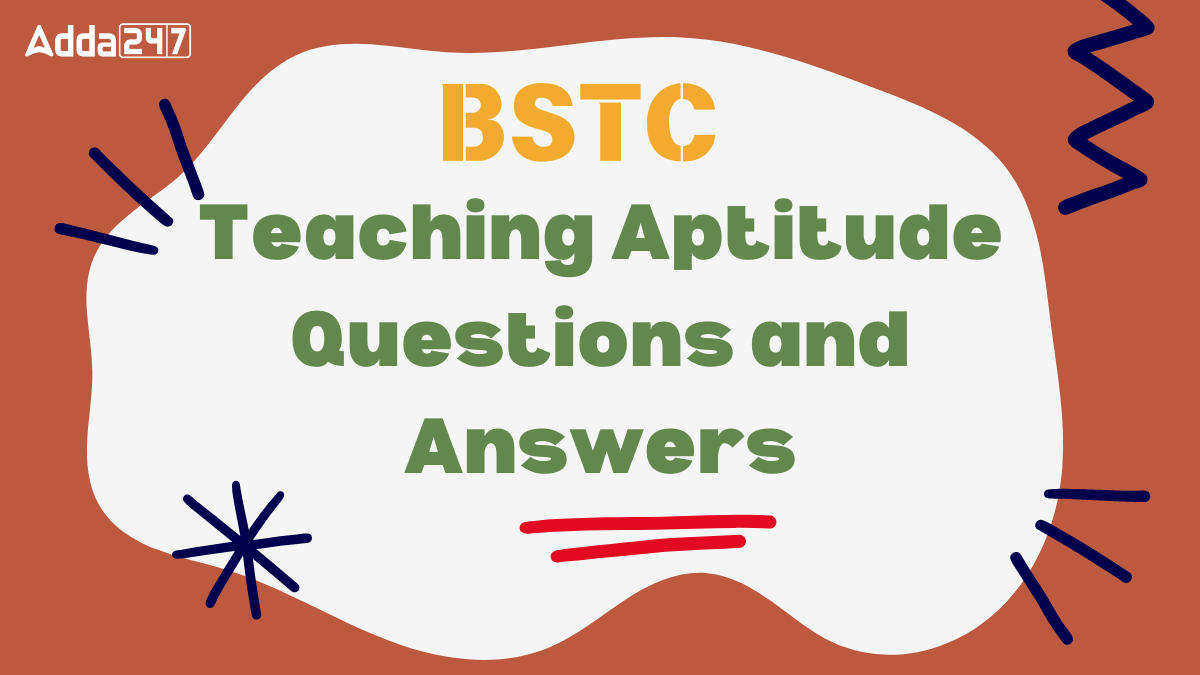
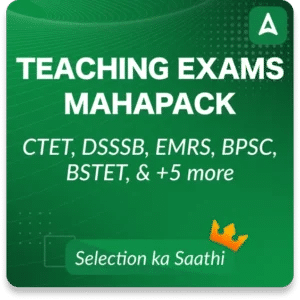

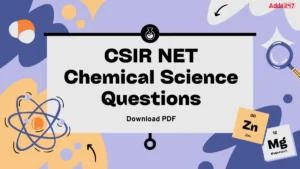 CSIR NET Chemical Science Questions with...
CSIR NET Chemical Science Questions with...
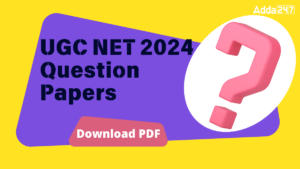 UGC NET 2024-25 Question Papers 1 and 2,...
UGC NET 2024-25 Question Papers 1 and 2,...
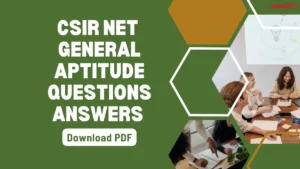 CSIR NET General Aptitude Questions Answ...
CSIR NET General Aptitude Questions Answ...














